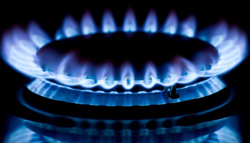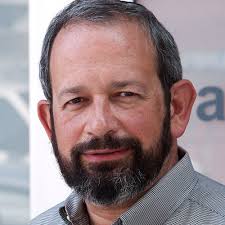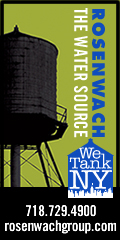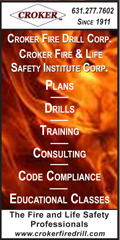 |
April 2016
 |
Preventing Future Fatalities in Gas Work: Our Turn at City Hall
Understandably, the legislation arose following an incident
in East Harlem and the Lower East Side, where lives were lost due to
construction involving gas-related systems. Our goal was to provide insight on
how such fatalities and lives would be better protect Offering testimony on behalf of BOMA/NY was Board Member (Professional Members’ Representative) Hershel Weiss, who was well-equipped as the BOMA/NY spokesperson. A Master Plumber, Hershel sits on the DOB’s Master Plumbers License Board and is the past President of the American Society of Plumbing Engineers. His testimony to the City Council is summarized here. Intro 738: Gas Qualification for Journeyman Plumbers Background: This bill requires registered Journeyman Plumbers to attain 200 hours of experience working under a Master Plumber, on gas projects, or take training/pass a test to be certified for natural gas project work. Only such certified Journeymen, or union workers, working with them, could work on gas projects, and only under the supervision of Master Plumbers. Our View: The bill produces two bottlenecks—first, there is a shortage of Master Plumbers working on gas projects, and Journeyman Plumbers overall. Second, both the certification requirements and the time it takes to achieve certification would make it difficult to add certified Journeyman Plumbers quickly. Given these constraints, the bill could bring gas projects to a standstill. At the least, the effective date of enforcement would have to be significantly extended so that a pool of qualified Journeyman Plumbers would develop, and with such bottlenecks, project costs would increase significantly. Intro 1088: Visible Gas Pipe Inspect and Ambient Air Testing
Our View: There are six potential pitfalls in the current draft of the legislation: 1) The bill would add to the workload of the already short supply of Master Plumbers discussed in Intro 738, further amplifying the bottleneck and cost issues. Even without Intro 738, it would be costly and time-consuming to implement. Given the lack of evidence of gas-related disasters in large commercial properties, we recommend that all those in excess of 100,000 sf be excluded from the law. 2) Inspection terms are vague, particularly in the areas of reporting and repair, where hazardous conditions would require shut-offs for further testing. When there are shut-offs, testing is expensive and time-consuming, and would result in tenants being without gas service. 3) Tenant spaces using gas are not addressed. The bill needs to clarify if areas such as kitchens, corporate dining facilities, etc. would be affected. 4) Over time, different codes have applied, and there is no system for a Master Plumber to know with which code the building must comply. 5) The bill’s focus on visible pipes is very limiting, as most piping is behind the wall, between floors or otherwise not visible. The bill, then, would not protect against the areas most prone to the types of violations that have led to explosions in the past. 6) It’s not clear that a four-year inspection cycle is optimal or necessary. BOMA/NY concluded its remarks by "applauding the Council and the City for taking on these issues, and we look forward to working with you, moving forward." |
| BOMA/NY Suite 2201 Eleven Penn Plaza, New York, NY 10001 Ph: 212-239-3662 Fax: 212-268-7441 www.bomany.org |
 |
 Once again, BOMA/NY was acting in its role of shedding light
on the practical application of proposed legislation, when we testified
on April 12th before the City Council on two local laws proposing new qualifications for
journeyman plumbers (Intro 738) and gas piping system inspections (Intro 1088).
Once again, BOMA/NY was acting in its role of shedding light
on the practical application of proposed legislation, when we testified
on April 12th before the City Council on two local laws proposing new qualifications for
journeyman plumbers (Intro 738) and gas piping system inspections (Intro 1088). ed without creating undue
burdens.
ed without creating undue
burdens. Background:
Background:



